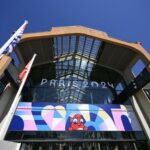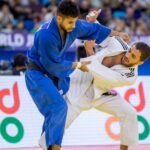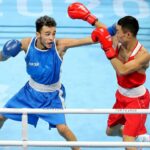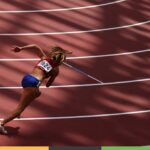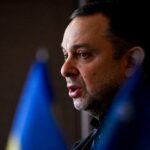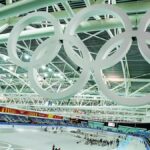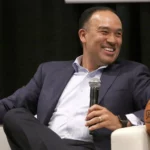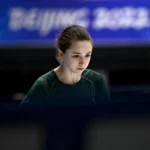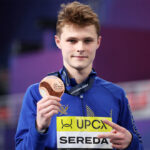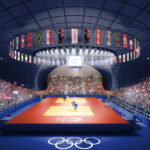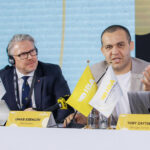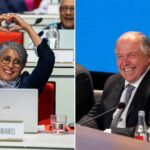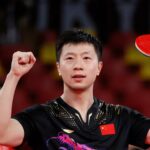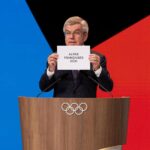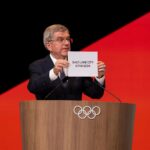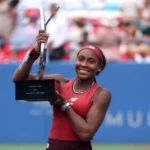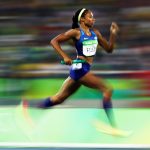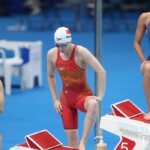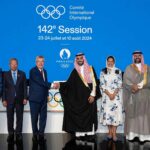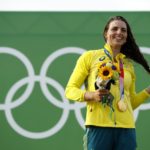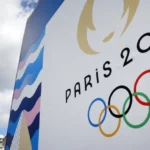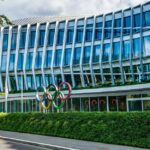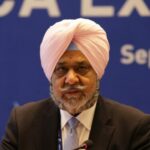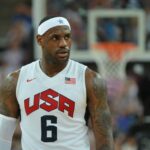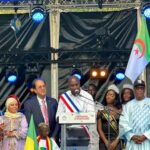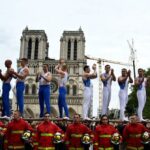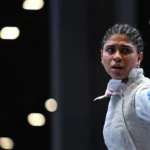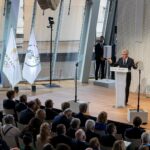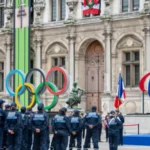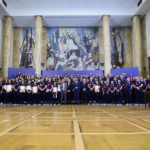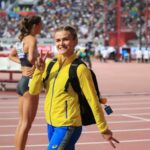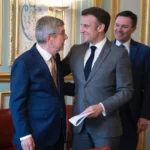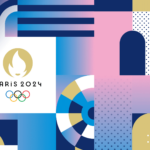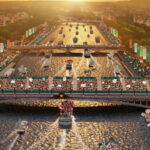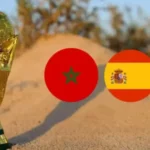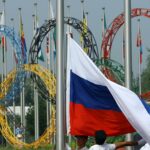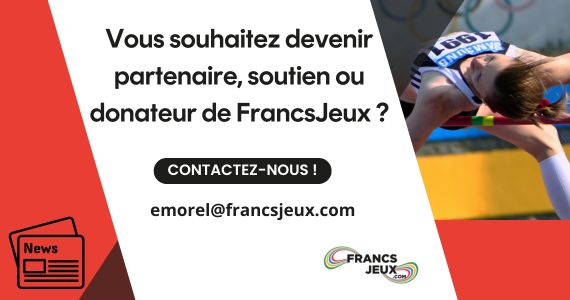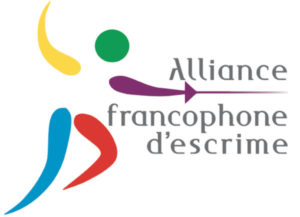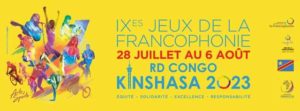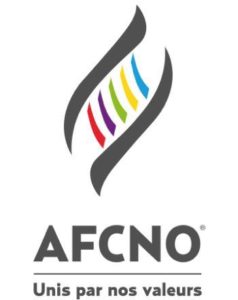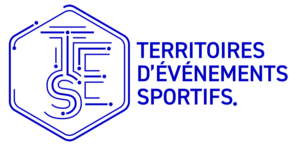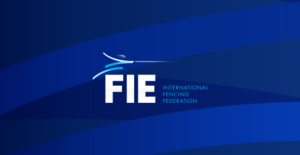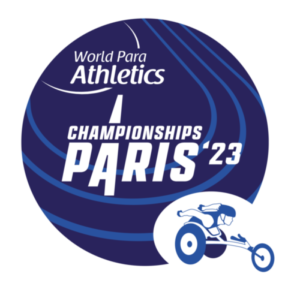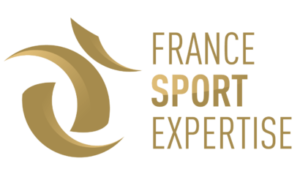Lausanne, Switzerland – October 28th, 2022 – Held in Lausanne, in the heart of the Olympic Capital, from October 24-26, the smartcities & sport 2022 summit enabled more than 250 participants from all over the world to generate new ideas and make connections on around the theme of « sportification of cities » – or how cities can become playgrounds for bringing people closer to sport. More than 40 speakers shared their ideas, thought outside the box and explored all places, from the most traditional to the most inventive, where sport can become a natural part of people’s lives and improve their well-being.
The 250 participants included representatives of more than 40 sports cities and 29 International Federations (IFs) from around the world. Attendees were invited to reflect on the question central to the event: how can cities be transformed into sports grounds and bring sport closer to people?
As a lead-in to the summit themes of ‘sportification’, the smartcities & sport summit kicked-off with a welcome reception at the Beaulieu Sports Hall. This former congress centre has been temporarily repurposed as a centre of sport accessible to all. The use of this ‘unconventional’ place for sport is one of the concrete expressions of the City of Lausanne’s policy on the development of associative sport and the promotion of sport and physical activity for all.
International Olympic Committee (IOC) President Thomas Bach opened the summit on Tuesday. He shared the Olympic Movement’s vision of how cities’ initiatives can bring sport closer to the people, and how this is essential for building a healthier society. Following his keynote address, the Deputy Mayor of the City of Paris; Pierre Rabadan, the Executive Committee Vice-Chair & Borough Mayor of the City of Montreal; Caroline Bourgeois and the Mayor of Lillehammer; Ingunn Trosholmen shared their cities’ strategies and objectives for encouraging more people to engage in sport, and in more places, in order to make a lasting positive impact on the physical and mental well-being of citizens.
Insights into the use of iconic and unconventional places was provided by, Krista Adams, Deputy Mayor of the City of Brisbane, with contributions from International Federations and host cities (Volleyball World, World Athletics and Innsbruck Tourism). The potential of sports events in building successful branding strategies for places and regions was discussed in depth.
Sport and culture – and how their combination can generate fruitful synergies – were examined from the angle of the Rotterdam Sport and Culture Week, with the birth of a new sport, Quidditch, from the iconic world of Harry Potter and the use of Poi, a New Zealand cultural sport bringing communities together, all of which provided interesting and diverse perspectives on attracting new audiences into sport.
Highlights of the afternoon included the topic of social innovation through sport as an untapped resource with notable contributions from Play International, TIBU Africa, Greater London Authority, and Laureus. The role of cities as bastions of freedom was also discussed through an extraordinary case. Philippe Leuba (former Canton of Vaud State Councillor of the Canton of Vaud), Jacques Landry (UCI World Cycling Centre) and Wahida Hussaini, an Afghan cyclist, engaged the audience with the journey of exile for the Afghan women’s cycling team, the organisation of the 2022 Afghan Road Cycling Championships in Aigle, Switzerland, and the power of sport to unite communities and serve as gateways to freedom.
Another highlight of Day 1 was the popular smart cities & sport ‘toolbox session’, which enabled organisations to briefly present their most promising projects. Explore Edmonton, the Lagos State Sports Commission and Pro-Projekt took the stage for five minutes each.
Led by moderator Kaveh Mehrabi (IOC), Raí Souza Vieira de Oliveira, a former international football player and change-maker, an international sports federation (International Muyathai Federation) and an organising committee (Birmingham 2022) the panel shared three different approaches on how to use athletes as role models that can positively influence the sports policies of cities.
On Day 2 of the summit, the focus was on youth and how to engage the younger generation in sport, through sport events and the metaverse. After an eye-opening sociological introduction by Charlotte Von Tuyckom (Howest School of Applied Sciences, Bruges), event rights holders (FIH and World DanceSport Federation), an organising committee (Lausanne 2020) and a city (Richmond, Canada) addressed the issue of using youth sports events as laboratories for new ideas to engage, empower and activate young people.
Another feature of Day 2 was the « marketplace session », a unique networking session that allowed cities and international sports federations to develop new relationships and discuss hosting opportunities.
To end the summit on a futuristic note, sport in the metaverse was highlighted as a new tool for reaching a younger population. Fascinating contributions were made by futurist Bugge Holm Hansen (Copenhagen Institute for Future Studies) and one of the most famous football leagues in the world (LaLiga) was also presented as having strong potential for boosting women’s sport.
With a group of fascinating speakers and two inspiring summit days, the smartcities & sport summit 2022 was a unique forum for discussing the importance of bringing sport to people and the role of cities in achieving this objective. In the words of IOC President Thomas Bach, who addressed smartcities & sport participants in the keynote address: “By sportifying our cities, we are bringing the power of sport right into the heart of our communities. In these difficult and uncertain times, we need this power of sport as a force for good in our communities more than ever.”
The next edition of the smartcities & sport summit will be held in the Olympic City of Paris, France, November 27-29, 2023.
Mélanie Duparc, Director at smartcities & sport: “This year’s summit theme,the sportification of cities, was the catalyst for us to explore all of a city’s territories and map-out all of the possible places where sport can be brought closer to people. It was a very rewarding two days of conferences that brought cities and sport together around a central theme for the future of cities.”

